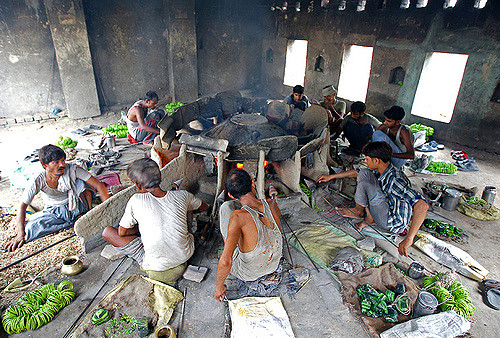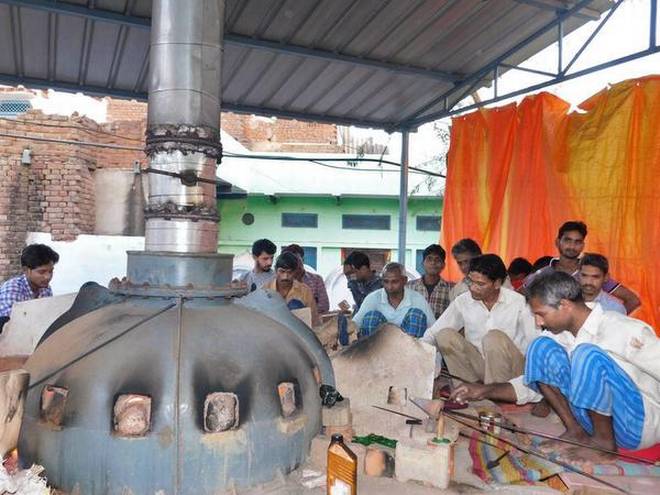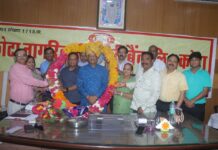
Green Bangle makers in Bharatpur district of Rajasthan have been rescued by the technology in the latest report. It suggests that a modified bangle Kiln has been installed in Unch village near Nadbai that has evidently saved villagers from the toxic fumes which were earlier a health hazard for the people residing in the area.
The Kachera clan laborers have been manufacturing green bangles in eastern Rajasthan for decades now. These bangles are commonly worn by women on auspicious, special occasions while performing rituals. However, the manufacturing procedure involves toxic fumes which pose threat to the health of these workers.
It’s a traditional approach in which kilns of mud and clay are fabricated using tudi, whereby vestiges of the mustard crop are used as fuel for heating these furnaces. The melting of glass in the oval-shaped kilns generates high flames along with toxic fumes in large quantity. This leads to the emission of poisonous elements which directly enter into the bodies of the workers, increasing the risk to diseases like asthma and tuberculosis.
 Modified Bangle Kiln (Image Courtesy: The Hindu)
Modified Bangle Kiln (Image Courtesy: The Hindu)
To counter this, Bharatpur-based Lupin foundation has initiated to modernize the conventional kilns. The modification has been assisted by the Rural Technology Action Group (RuTAG) at IIT, New Delhi. Not only the firebricks of the modified kilns protect the workers despite operating at as high as 1400 degree Celsius but it also doesn’t allow generation of fumes and gases.
As per the reports, these modified kilns utilize only 50% of the fuel used previously. Moreover, it also increases the quality and production of the bangles. Also, it allows te bangle makers to work in a comfortable arrangement which would enhance their efficiency. This modification of kilns is likely to be taken up in many other villages of the district. This would lead to twin benefits of protecting the environment and promoting the bangle business.








